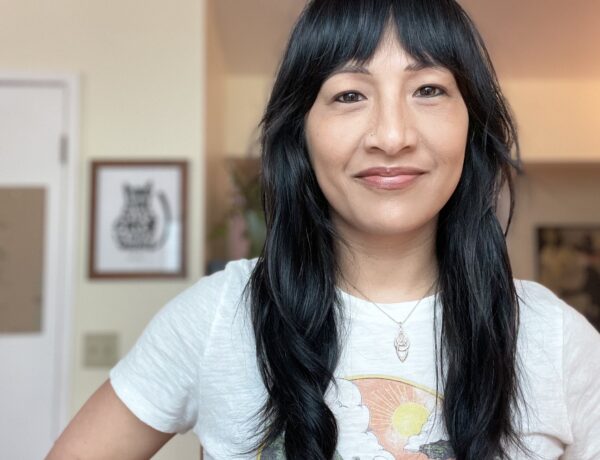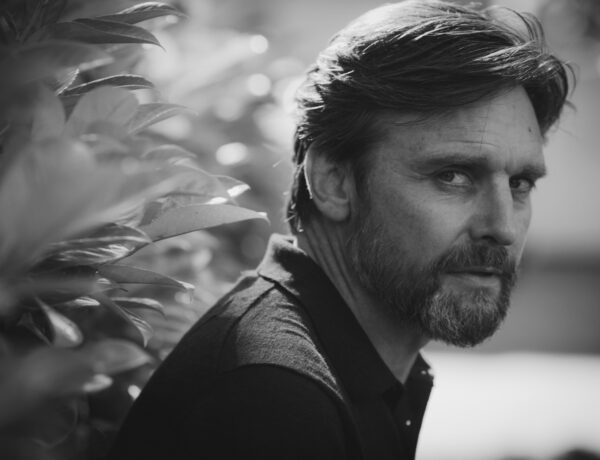Tim Facciola is an author and virtual fitness professional based in Arizona. His debut novel, A Vengeful Realm: The Scales of Balance, combines his love for epic fantasy with insights from his fitness training.
Alongside his writing, Tim offers Gladiator Training and author coaching. He enjoys a variety of hobbies including reading, gaming, and outdoor activities. He lives with his wife, Colleen, and continues to explore different storytelling mediums.
Tim, your debut novel A Vengeful Realm: The Scales of Balance seems like a culmination of a decade-long journey in epic fantasy writing. What inspired you to embark on this particular story, and how has your passion for storytelling evolved over the years?
It began with my band breaking up. I used to write a lot of the lyrics, but without the collaborative effort of songwriting, I wanted a new creative outlet and stumbled upon novel writing. In terms of telling this particular story, it was just the culmination of things I’ve loved smashed together in what would be my perfect book. I started out by writing the story I wanted to read, but it became much more than just gladiators, political upheaval, and warring gods.
Over time, and with significant help from Chersti Nieveen, a developmental editor and story structure expert at Writer Therapy, the story began to evolve into something much deeper—a soul-searching examination of the human condition. The evolution from a collection of ideas or tropes to a thesis that leverages such ornaments to showcase a much more profound theme was astounding for me.
I just wanted to learn more, study more, and truly understand the craft. Over the past decade, that study and my passion for teaching have intertwined, so now I hope to help other prospective writers form their ideas into powerful stories.
Given the complex world-building required in epic fantasy, how do you organize and keep track of the details in your novels? Do you have a particular system or method?
I am a heavy, heavy plotter. I mean that in the sense of each phase of the planning process. World building, magic systems, historical context, theological principles, philosophical values—and that’s just setting the scene.
Then I plan out my cast of characters, the role functions they’ll serve in the story, the archetypes that they might fit into and how they might interact with each other. Once I have the world set, the characters taking shape, I begin to work the plot outline for each of the characters to ensure they have fulfilling arcs.
Lastly, I funnel all of that through the lens of a thematic statement to make sure everything from the world to the characters and the journey they go on reinforces that messaging. So if you can imagine, I have a handful of spreadsheet templates I’ve created to help keep me organized. It’s a system that helped me with this world, but I know it will assist me with the stories to come.
Your background as a virtual fitness professional and your unique training methods with swords and staves seem fascinating. How do these physical disciplines influence your writing, particularly in crafting action scenes and character development?
I’ve worked in the fitness industry for the last fifteen years. Studying the details of movement—joint angles, sequencing, paths of motion, etc—has given me an eye and an appreciation for all that has to happen for something to go right (or wrong) within the human body. Seeing and feeling however, are two different things. So kinesthetically, getting to move in the way I’m trying to describe someone moving is extremely helpful.
Most everyone who reads AVR points out the combat scenes with particular fondness. I credit this to not only envisioning it, but acting it out to a degree. Feeling what’s possible and what’s not. What’s natural, and what’s contrived. Sure there are some “movie-magic” moments, where things look/sound cool so they show up in literature and film even though they’re not realistic or physically probable, if not impossible.
But for the most part, trying to ground the scenes in my own movement experience allows me to write a more authentic combat scene which, therefore, is more likely to be properly visualized, and hopefully be more appreciated by readers.
You mention integrating creative passions into movement and training. Can you share how this physicality feeds into your writing process? Does it help you connect with your characters or the narrative in a different way?
I’ve always been a “learn-by-doing” kind of person. So my creative passion for writing influenced the way in which I wanted to exercise, and the way I exercised enhanced the way I was able to write. I do believe there is a connection I can make with characters when I am writing from my own experience, so when I can tap into that, it definitely influences the narrative.
However, as writers, we’re not always partial to the experience we’re trying to write from, yet we still must attempt to narrow the gap in order to form the empathetic bridge from character to reader that makes the story so powerful.
Considering your unique blend of physical training and creative writing, do you incorporate any specific routines or exercises to prepare mentally and physically before a writing session?
I wouldn’t say that I do anything particularly before a writing session. I write when I have time. As a fitness professional, my schedule in many ways is not my own. Sometimes I have time to write in the mornings. Other times it’s the afternoon, late at night, etc. But having held swords, maces, staves, etc it’s not something you soon forget.
However, I will say that sitting at a computer and writing for hours on end does not make for good posture, so I do perform a series of soft tissue routines, mobility drills, and stability exercises to break free from the chair and feel my best everytime I sit down to write!
How do you balance your time between your fitness profession and writing? Are there any habits or practices that help you switch between these two demanding roles?
Book 1 of A Vengeful Realm is titled The Scales of Balance. Finding balance has been an ideal I’ve always strived to achieve. It’s not easy. There are definitely times where one overtakes another. The biggest practice for me has been patience and grace. The patience with myself to write at my own pace and not compare myself to others’ unique experiences, and the grace to give myself a break when I haven’t lived up to my own expectations.
Being a fitness professional and working one on one with people can be a taxing job. Most people think it’s physical, but for me and my role with my clients, it’s definitely more mental and emotional. I’m not just counting reps and saying, “good job!” I’m analyzing every movement at every joint, attempting to unlock my client’s potential. Sometimes that’s a matter of getting someone in pain out of pain.
Other times it’s tweaking how someone moves to make an inefficient pattern more accessible to improve performance. And yet other times, it can be emotional. Some of my clients I see 2-3 times a week in a one on one setting. They talk to me more than their best friends, parents, children, even spouses sometimes. That can take an emotional toll.
As you can imagine, writing certain scenes can also be emotionally exhausting, especially when it is rubbing up on personal experiences. So setting goals, setting boundaries, and checking in with myself so I know when to give myself the spur or when to give myself a rest has been extremely vital in balancing both careers.
If you could have a conversation with any author throughout history about their writing routine or creative process, who would that person be?
For me it would have to be Brandon Sanderson. The man is a talented writer, a creative mind, a teacher of thought, and he has a knack for business. The quality of his work and the quantity he has amassed over a relatively short period of time is astounding. While there are a number of authors from yesteryear who I would love to learn from, there are few people who I think know the modern demands of the publishing industry or are quite as close to the forefront of tomorrow as Brandon Sanderson.
Lastly, I’d love to know about the books you’re reading at the moment. What have been some of your favorite recent reads?
As I’m sure it won’t surprise you, I’m currently buddy-reading The Way of Kings by Brandon Sanderson with my wife. For me it is a reread of the series prior to the fall release of Winds and Truth, the fifth book in The Stormlight Archives. For my wife, it is her first time branching out into the wonderful world of fantasy after reading A Vengeful Realm. But one book that I loved and can’t shut up about is Nottingham by Nathan Makaryk. It’s one of the best books I’ve ever read, and I never hear anyone talking about it. It’s a Robin Hood retelling for the modern era that I think everyone should read.



No Comments